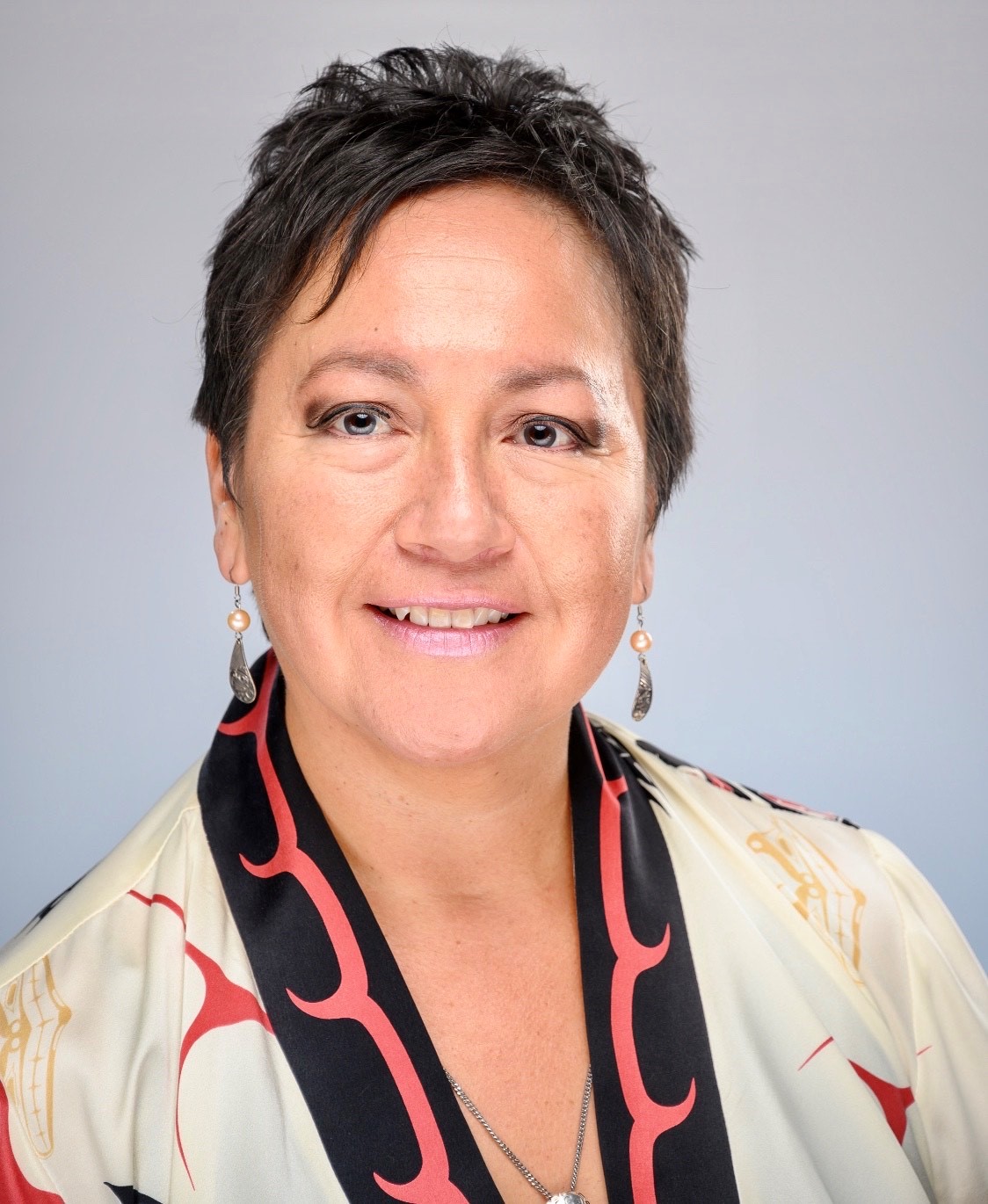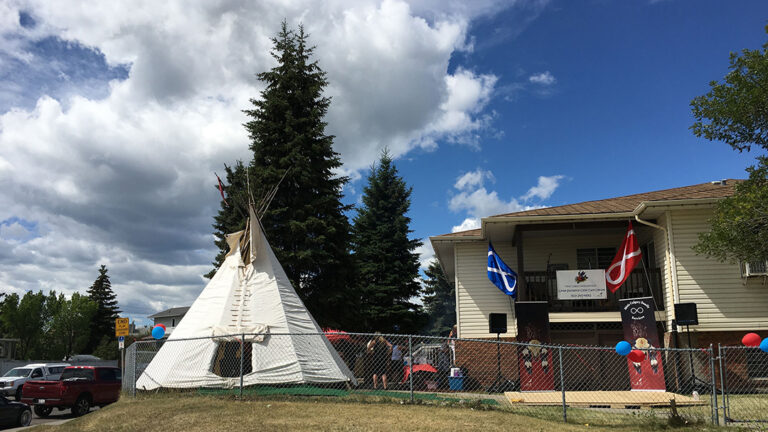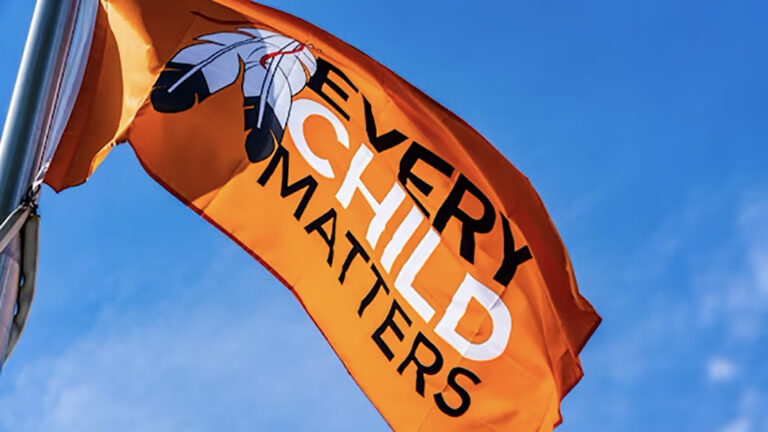Interview with Margaret Pfoh, chief executive officer at AHMA and member of The Centre’s Board of Directors
Written by Jennifer Hille
When did you join the Community Housing sector and why?
Honestly, I fell into housing by sheer happenstance and meets in 1994. I gave birth to my daughter two weeks after graduating from Simon Fraser University in Criminology and Psychology. Instead of listening to Bach or classical music in utero, she got an earful of theories of moral judgment, automaticity, and my interviews with violent criminals. She was born in 1993, and I chose to take time off and just be with my daughter, delaying entrance into U. B. C. Law.
During that time, I saw a sign in a window, looking to recruit a Native Tenant Relations Coordinator. I applied, got the job, and started part-time at Mission Native Housing, helping tenants gain access to a residence here in Mission, BC. That is how I entered the community housing sector, and quite honestly, I did not expect to stay for all these years.
For Indigenous by Indigenous Housing in BC
As it remains a challenge, even today, to find skilled housing employees, never mind Indigenous housing employees, my organization did not want to let me go. In 1996 they promoted me to General Director for Mission Housing. While I worked for the same company for 23 years, I also took the time—with my fellow housing providers across BC— to create the Aboriginal Housing Management Association (AHMA), which is the first of its kind.
It is the first for Indigenous by Indigenous non-profit housing organization that would handle administration of all our housing programs. In Quebec the non-profit housing providers in the ’90 fought against the devolution of the housing programs to the province. Here in BC, we founded the AHMA to fight against the devolution of Indigenous Housing to the provinces and managed to get the devolution of Indigenous Housing transferred to us. In that way, we can administer our own programs, without having a non-Indigenous entity dictating our needs and capacity.
In the light of recent events, how would you describe where we are at today regarding Indigenous Housing Issues in Canada?
Given what has been happening in our world over the last few months, there is a lot to be said about the topic. Certainly, Covid-19 has highlighted the disparity between Indigenous and non-Indigenous communities. And of course, Black Lives Matter has highlighted the lack of real awareness in the non-Indigenous, non-Black, non–visible-minority communities to fully realize how far-reaching systemic racism is.
It is funny, when you were voicing your introduction to this interview, I thought for the first time that I suppose one could say my whole career of housing has been an act of reconciliation in and of itself. Because as you know, I am a Sixties Scoop child. As a First Nations child, I was taken away from the womb of my mother at birth and raised in a Non-Indigenous community. And that is the snapshot of what urban Indigenous Housing providers really address. They address the dispossession of Indigenous peoples.
When we say Indigenous, I am referring to First Nations, the Inuit, the Métis and all the “Non-Status Indians“ those who never knew they were Indigenous because they were adopted at birth. All the Métis whose parents felt shame and fear, raising them as white children, while keeping their identities hidden. These are the people whose needs are represented by urban and northern Indigenous housing providers. And we have been doing this in a very unsupported way. We have created our own sense of community and the challenge that we are facing in all this messy current reality is to amplify our common voice.
Black Lives Matter and Common History of Systemic Racism
At a recent meeting that I had with a non-profit group called Hogan’s Alley (a NPO committed to daylighting the presence of Black history in Vancouver and BC), I asked them how we could support them at this time. Because we share a common background of dispossession as well as a common history of systemic racism. And there has to be a way to take the momentum to effect change on multiple levels.
As much as we are lucky here in BC, being the only province in the country, even in the world, to table the United Declarations on the rights of Indigenous people (UNDRIP) into legislation, Bill 41 was passed here in British Columbia last year. AHMA wanted to be that government body that speaks on behalf of urban Indigenous people. After 3 years of relationship building with the Minister in BC, I felt optimistic that we had a minister who really wanted to make a difference and implement change. It culminated last summer with an agreement between the Minister and AHMA that we would create a protocol agreement helping us to effect real change and truly apply our “for Indigenous by Indigenous” Leadership. As a team, we have spent months drafting up a relationship protocol agreement.
And then we received a letter in June, without any further communication or a phone call, informing us that it is inappropriate to sign an agreement when we are mandated to deal from government to government. Which means, essentially, they are furthering the very system of racism that dispossessed us as Indigenous peoples across the spectrum, through the Sixties Scoop, the residential schools, the day schools, the reserve systems in and of themselves. They are taking all the dispossessed marginalized urban, rural and northern Indigenous people and marginalizing them even further in that letter.
This issue of our minister of BC, on one hand wanting to hold up the argument that this province, this Minister, this country is going to honour Indigenous peoples by tabling and legislating UNDRIP, yet with the other hand waving aside the urban Indigenous people and saying, “We cannot talk to you.” It is a blatant demonstration of their utter failure to understand. It is the system itself that is holding Indigenous people back. Injustice is due to systemic structures. And if all levels of government fail to recognize that, they are continuing to use a system, built on racism, to marginalize urban Indigenous people.
What are your hopes for Indigenous housing for the next 12–24 months?
Even if I find this question a bit ironic in the context of most recent events, including murders of Indigenous people by the police, the government’s lack of action regarding the Missing and Murdered Indigenous Women and Girls report and in other areas, which has led to sharp criticism from many Indigenous Groups.
It is ironic, but in many ways, it is truly going to be a demonstration of the resilience of the Indigenous population. In the light of current events, such as George Floyd being so publicly murdered by the police and the following Black Lives Matter movement, Indigenous people feel that these are not unprecedented times. As urban and Indigenous peoples, as First Nations peoples, we survived many pandemics. Right from the first colonization with smallpox, with each deliberate attempt of genocide through biological weapons. This is what was done when this country was invaded.
My mentor Gordon Gong, who made the decision to transfer me into leadership in housing, firmly believed we had to go through civil war to gain that kind of awareness of the systemic racism of our Indigenous peoples. He gifted me the book Where White Men Fear to Tread by Russel Means, and it took me an exceptionally long time to read it because it ignited that flame inside of me that wanted to go to war.
If Not a Revolution, Then an Evolution for Indigenous People
Look at this country, look at Wendy Cornmiller, who was stabbed standing up for her younger sister, fighting over traditional lands. And you think that we would have gotten to a point of war already in this country over the urban Indigenous, over the First Nations.
I think that the next 12-24 months will prove the resilience, the strength and the capacity of Indigenous people. We have survived oppression. We have survived ostracizing. We have survived blatant attempts of genocide. We will survive this too. And I alluded to this at a CHRA conference here in Victoria. When we talked about reconciliation, I said, the sleeper will awaken. And what will happen is that we will see a uniting of the Indigenous people in a way that this country doesn’t expect. And the voice that will come, will bring power.
I passionately believe that in the next 12-24 months we will see, if not a revolution, an evolution. That we will see a leadership truly transferred to Indigenous peoples. And if it doesn’t happen, I believe we will get to a point where there will be no choice but to see more civil unrest.
Preserving Indigenous Culture as a Powerful Tool for Addressing Homelessness
Moving into the political realm has challenged my sense of belonging. When we dispossess a certain population and we continuously dispossess them because we don’t make systemic change, it leaves deep marks. As women, Indigenous people have a long history of systemic oppression and the only way to move forward is through solutions driven by them.
What also tends to happen so many times, and I could give you lots of personal examples, is that when a system oppresses and discriminates against groups, it creates internal oppression. When we dispossess Indigenous populations, it fosters shame for one’s identity and breaks their sense of belonging. There is an identity struggle, especially when children are not educated by their Indigenous parents, and I have witnessed this occur to people close to me.
Community Housing as Panacea of Any Crisis
The reality of affordable housing and its history stems from the foundation of discrimination, whatever the underlying reason may be. Social housing exists because it provides an opportunity to meet at least one of the basic needs of Maslow’s hierarchy of needs met—shelter. If we look at moving forward in the next 12 to 24 months, Covid—19 has shown that housing is the panacea of any crisis. It’s the solution for opioids, for Indigenous issues, for domestic violence, for sex trade exit strategies, it’s the solution for Black Lives Matter, for the LGBTQ communities. Because if we don’t provide safe places for people to shelter, how will they ever begin to address their own needs? They will not be able to.
To end on a bit of a lighter note, can you name a quality that has helped you persevere?
Even though I wasn’t raised in an Indigenous community or conferred cultural understanding, I have still maintained the capacity to have that sense of humour. It has helped lighten the load in many situations. Even if my humour can be a little crass at times, laughing has allowed me to stay optimistic and motivated, and to continue representing urban Indigenous groups to the best of my abilities.
Thank you for sharing your story with us, Margaret!



